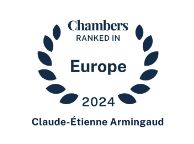Recent legislative updates have emerged in France, focusing on the intricate balance between national regulation and European Union directives —especially relevant to the evolving sector of commercial influence. The French law no. 2024-356, passed on 22 April 2024 (“DADDUE Law”), has granted the government a nine-month window to modify previous statutes to align with European standards.
The DADDUE Law will harmonize French national law (notably Law no. 2023-451 on the Regulation of commercial influence of 09 June 2023, see our previous post on this topic) with various European texts, including the e-commerce directive and directives like the DSA and SMA.
Among the articles set for revision are:
- Article 1 regarding the definition of influence;
- Article 2 on influencers’ agents;
- Article 4 on prohibited sectors of promotion;
- Article 5 on advertising disclosure requirements;
- Article 8 on the framework of contracts between influencers and agents; and
- Article 9 on insurance mandates for non-European influencers.
This underscores an initiative to refine the French national law on commercial influence in response to feedback from the European Commission.
The DADDUE Law will also repeal five articles within the prior law (articles 10, 11, 12, 15, and 18) that intersect with the Digital Services Act (DSA), on the obligations for hosting providers to implement alert systems for reporting illegal content and to comply promptly with legal and administrative injunctions to remove such content.
Furthermore, a government report will be presented within the next three months to address the necessary adjustments to Law no. 2023-566 on setting a digital majority age and battling online hatred, again drawing on remarks from the European Commission.
The path paved by the Law of 22 April 2024 requires a meticulous approach to legislative adaptation, ensuring that national regulations resonate with broader, collective European goals. This development is pivotal for professionals within the digital influence sphere and platforms hosting user-generated content, who must stay abreast of the changing legal landscape to sustain compliance and foster responsible online interactions.
First publication: K&L Gates Fashion Law Watch Blog – in collaboration with Kenza Berrada



